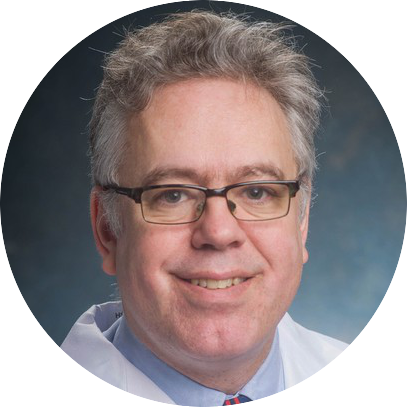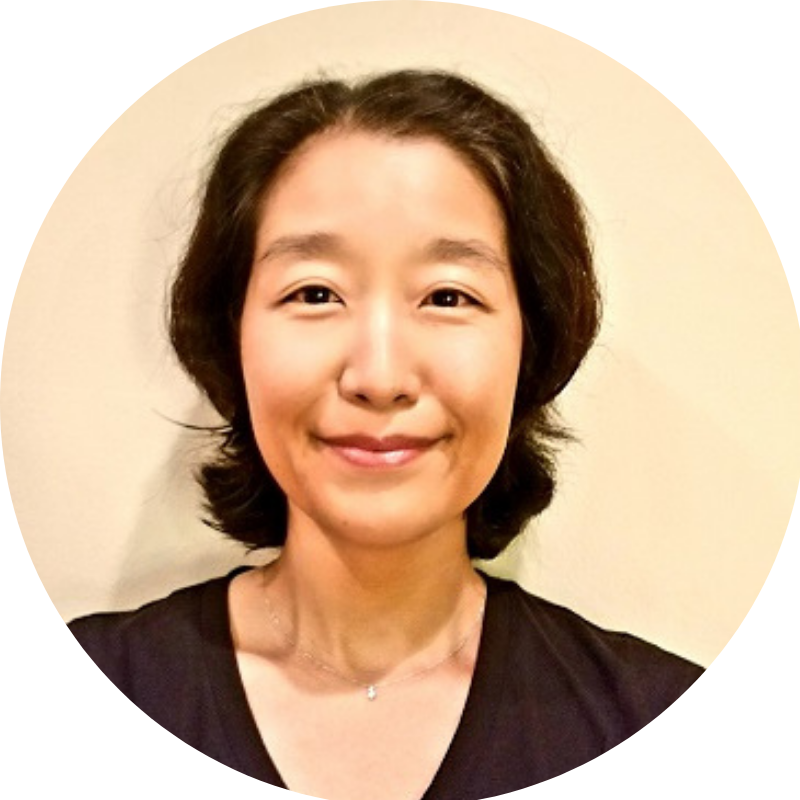PHYSICS COMMITTEE



Christoph joined the European Radiosurgery Center in Munich, Germany in 2007 and is their chief medical physicist. He received his PhD from the Atomic Institute of the Austrian Universities and the Medical University of Vienna in 2007. He was a guest researcher at the Heavy Ion Medical Accelerator facility (HIMAC), National Institute of Radiological Sciences (NIRS), Chiba, Japan and at the Department of Stereotaxy and Functional Neurosurgery, University Hospital Cologne, Germany. His main research interests are intrafraction motion compensation, robotic and gyroscopic radiosurgery. In addition to being a member of the Radiosurgery Society (RSS), Christoph is member of the German Society for Medical Physics (DGMP) and the Austrian Organization for Radiation Protection (OeVS). After serving as Vice Chairman of the Physics Committee and Chairperson of the Treatment Planning Subcommittee, Christoph became Chair in April 2024.

Dr. Kim received her PhD degree in Applied Mathematics from the University of Washington in 2010 and is currently a Professor at the University of Texas Southwestern where she serves as the Senior Director of Clinical Physics. Her research focuses on the optimal design of radiotherapy and management of cancer therapy. Dr. Kim has extensive clinical experience in LINAC-based stereotactic radiosurgery, GammaKnife, and stereotactic body radiotherapy. Her current clinical interests include stereotactic body radiotherapy and automated treatment planning to improve patient safety and workflow efficiency. She joined the RSS Physics committee in 2021.

Dr. Stanley Benedict received an MS in Radiological Health Physics from San Diego State University, PhD in Biomedical Physics from UCLA, and diplomat in Radiological Therapeutic Physics from the American Board of Radiology. He has served as Chief of Clinical Physics at Virginia Commonwealth University, Director of Clinical Physics at the University of Virginia, as well as Professor and Vice Chair of Clinical Physics at the University of California at Davis in Sacramento, California. He is currently the Professor and Chair of Medical Physics in the Department of Radiation Oncology at the Massey Cancer Center at Virginia Commonwealth University.
Dr. Benedict has over 100 scientific publications, book chapters, and proceedings, and over 200 abstracts and scientific presentations at international symposia. Dr. Benedict has been PI, co-PI, co-investigator, and collaborator on a wide array of public and privately funded clinical medical physics research, including projects involving image guided radiation therapy, stereotactic radiosurgery, and radiation biology.
Dr. Benedict was the Chair of the AAPM Task Group 101 on Stereotactic Body Radiation Therapy, and is one of the editors of the CRC Press book entitled, Stereotactic Radiosurgery and Stereotactic Body Radiation Therapy (2014). Stan joined the Physics committee in August 2014, and is currently also serving on the Board of Directors of the RSS.

Marc obtained his master’s in physics and medical physics at McGill University in 1991. He is the Director of Photo\Proton Stereotactic Physics and lead physicist for general photon treatment planning at Massachusetts General Hospital. He is certified by the American Board of Radiology and a Radiation Oncology Practice Accreditation surveyor for the American College of Radiology, reviewing and assessing small, medium and large clinics treating with a myriad of modalities and systems to ensure high quality standards. Marc has been involved in proton therapy for over 30 years providing clinical support, contributing to workflow and quality control improvements, collaboratiing with vendors to develop and integrate technology with cyclotron and synchrotron prototype therapy systems and was the lead physicist to design\build\implement a successful in-house dedicated stereotactic proton beamline. His stereotaxi tenure has spanned Linac treatments from the era of invasive fixation to modern high-volume imaged-based SRS/SBRT platforms. Marc is also a Research Associate at Harvard Medical School contributing to retrospective studies and R&D related to patient care with interests focused on CNS, ocular and pediatric care, photon, and proton stereotaxi, patient immobilization, proton therapy, teaching, quality assurance and control.

Dr. Della Biancia was born in Cordoba, Argentina. He obtained the degrees of Licentiate in Physics under the direction of Lic. Monica Brunetto and Professor in Physics at the Universidad Nacional de Cordoba. He continued his post-graduate studies at Comisión Nacional de Energía Atómica, Buenos Aires, receiving degree of Physicist Specialized in Medical Physics. He obtained a Doctorate in Physics from Universidad Nacional de Cordoba under the mentorship of Dr. Doracy Fontenla, performing the research at Montefiore Medical Center, New York. He holds certification in Medical Physics (Radiation Oncology) from the ABMP. In 2000, he joined the Department of Medical Physics at Memorial Sloan Kettering Cancer Center and currently he is an Associate Attending Physicist. In addition to clinical roles, he is the Coordinator of Treatment Planning for MSK Outpatient and Alliances Facilities. He oversees the treatment planning activities across the whole network, maintaining quality and consistency and providing education and clinical support. Dr. Della Biancia is greatly involved in national and international education. He has also been a Board of Directors member of the AAPM as well as the Local Chapter (RAMPS).

Matthew earned his Ph.D. in Medical Physics from the University of Wisconsin, Madison in 1993. He currently serves as Chief Physicist in the Department of Radiation Medicine at Roswell Park Comprehensive Cancer Center in Buffalo, NY, a position he has held since 1998. He also holds an Associate Professor appointment in the Jacobs School of Medicine and Biomedical Sciences at the University at Buffalo (UB), and he has mentored numerous Master’s and Doctoral students enrolled in UB’s CAMPEP-accredited medical physics graduate program.
Dr. Podgorsak has been supporting a Gamma Knife radiosurgery program since 1998, with his most recent experience being with the ICON. He is board-certified in Radiation Oncology Physics by the American Board of Radiology and the American Board of Medical Physics. He is a Fellow of the American Association of Physicists in Medicine (AAPM) and is a member of the American Society for Radiation Oncology, the American College of Radiation Oncology, and the Radiosurgery Society (RSS). He also serves as the therapy medical physics Trustee for the American Board of Radiology, and he is a member of several AAPM committees.
Dr. Podgorsak is an associate editor for the Journal of Applied Clinical Medical Physics and as a reviewer for several other journals, including the International Journal of Radiation Oncology, Biology, and Physics; Physics in Medicine and Biology; Radiology and Oncology; and Medical Physics. Dr. Podgorsak joined the RSS Physics Committee in July 2020.

Dr. Popple received his PhD in Physics from Rice University, followed by a post-doctoral fellowship in Medical Physics at the University of Texas M.D. Anderson Cancer Center. He joined the faculty of the Department of Radiation Oncology at the University of Alabama at Birmingham in 2000, where he is currently Professor, Director of the Division of Medical Physics, and Vice-Chair of Physics. Dr. Popple has extensive clinical experience in linear accelerator multi-leaf collimator-based radiosurgery, and was an early pioneer in multiple target, single isocenter radiosurgery. His current clinical interests include MLC based functional radiosurgery, surface imaging for intra-fraction motion management during intra-cranial SRS, and automation to improve clinical workflows. Dr. Popple has been a member of the Radiosurgery Society (RSS) since February 2023, joined the Physics Committee in June 2025, and is serving as Chairperson of the Emerging and Specialized Technologies Subcommittee.

Dr. Stephen Sorensen discovered his passion for medical physics while earning a BS in Nuclear Engineering and Engineering Physics from the University of Wisconsin-Madison, later obtaining his Masters and PhD in Biomedical Physics from UCLA. In 2009, Dr. Sorensen received his ABR certification in Therapeutic Medical Physics and joined St. Joseph's Hospital and Medical Center (Phoenix, AZ), where he now serves as the Chief of Medical Physics for the Dignity Health Cancer Institute. Dr. Sorensen is an AAPM member and an associate editor and reviewer for the Medical Physics journal. He holds faculty appointments at the University of Arizona College of Medicine-Phoenix and Creighton University School of Medicine, and is a participant of the CommonSpirit Oncology Clinical Institute (OCI). Dr. Sorensen has been a member of the Radiosurgery Society (RSS) since 2007 and joined the Physics Committee in June 2025.

Winston (Ning) Wen completed his PhD degree from Wayne State University and MBA from the University of Michigan. Winston has strong interests in many aspects of professionalism in medical physics including clinical care, research and education. He served as the Director of Clinical Physics at Henry Ford Health System and the Co-director of a stereotactic radiosurgery course at Henry Ford which has trained over 300 clinicians/physicists/therapists in the last five years. He has been a principal investigator on a Research Scholar Grant from the American Cancer Society and a co-investigator on several NIH or industry-funded research grants. His current research interest is to apply supervised and unsupervised machine learning algorithms to analyze omics data derived from medical images and cancer genome for patient risk stratification and treatment response assessment.

Dr. Yoo is currently an Associate Professor, director of clinical physics, and director of treatment planning at Duke University Medical Center in Durham, North Carolina. After receiving a PhD in Medical Physics from University of Wisconsin, Madison in 2003, Dr. Yoo joined Radiation Oncology Department at Duke University in 2005. Her special focus is on treatment planning & QA, AI clinical implementation, clinical development of SBRT processes.

Steve Goetsch is a clinical medical physicist in San Diego County, California. He received his PhD in Medical Physics from the University of Wisconsin Madison in 1983 and directed the Accredited Dosimetry Calibration Laboratory there for 7 years. After 4 years at UCLA Medical Center, he became Chief of Physics at the San Diego Gamma Knife Center and also works at Palomar Medical Center and the University of California San Diego Cancer Center in Chula Vista. Steve is Chairman of AAPM Task Group 178 on Gamma Stereotactic Radiosurgery Dosimetry and Quality Assurance. He is a member of AAPM, ASTRO, ISRS and the Health Physics Society. Steve joined the RSS Physics Committee in March 2012.
Dr. Goetsch taught graduate students in Medical Physics for 7 years at the University of Wisconsin and for 16 years at San Diego State University. He has been a Clinical Instructor at John Patrick University of Health and Applied Sciences for 7 years and has recently become an instructor at National University in the undergraduate Radiation Therapy program. He has been Education Chair of the AAPM Southern California Chapter since 2005.

Dr. C-M Charlie Ma received his PhD in medical physics from the University of London, London, UK in 1992. Dr. Ma continued his radiation therapy research and postdoctoral training at the Institute of Cancer Research and Royal Marsden Hospital, London, UK. He was a research officer at the National Research Council of Canada, Ottawa from 1993 to 1996, and an associate professor at Stanford University, Stanford, CA from 1996-2001. Currently, he is Professor, Director of Radiation Physics and Vice Chairman of the Department of Radiation Oncology at Fox Chase Cancer Center, Philadelphia, PA. Dr. Ma is specialized in Monte Carlo dose calculation, radiation dosimetry, image guidance, treatment optimization and delivery for intensity-modulated photon therapy, and energy- and intensity-modulated electron and proton beams for radiation therapy. He has edited 4 books and published more than 20 book chapters and 150 peer-reviewed journal articles in these areas.

Brian received his PhD in nuclear engineering from Rensselaer Polytechnic Institute in 2005 and privatim BA from Yale University in 2019. He worked as a faculty medical physicist in the Department of Radiation Oncology at Cooper University Hospital from 2005 to 2007, where he received his clinical training. He joined the University of Utah as an assistant professor in 2007, where he specialized in LINAC-based stereotactic body radiotherapy (SBRT) and stereotactic radiosurgery (SRS). Brian moved to University of Louisville in 2013 to lead the physic team. In 2019, Brian became the Director of Radiation Oncology Physics at Yale New Haven Hospital, leading all the physics, dosimetry, and engineering teams. In 2022, Brian joined Junxin Oncology Group in China as the CTO, serving the local Chinese cancer patients. He is a Fellow of AAPM and an oral board examiner for ABR. Brian is on the presidential chain of NACMPA and a board member of SANTRO. Brian joined the RSS Physics Committee in 2012 and was the Chairman between April 2021 and March 2024.

Dr. Jun Yang received his Ph.D. in Biomedical Engineering from University of Miami in 2006. He served as the chief physicist at Philadelphia CyberKnife in Pennsylvania and as adjunct clinical associate professor at Drexel University. Prior to joining Philadelphia CyberKnife, Dr. Yang practiced as a medical physicist at the University of Miami. Dr. Yang is now with Junxin Oncology Group & Foshan Chancheng Hospital in China.
Dr. Yang has managed thousands SRS/SBRT cases and has authored and co-authored numerous publications on medical physics with emphasis on radiosurgery physics, radiobiology and clinical outcomes. Dr. Yang is a member of the American Association of Physicists in Medicine (AAPM) and American Society of Radiation Oncology (ASTRO). He participated several task groups of AAPM related to radiosurgery and he has served the RSS Physics Committee since 2011.

Dr. Yin received his PhD in medical physics from the University of Chicago, Illinois in 1992. Currently, He is the Professor and the Director of Radiation Physics in Radiation Oncology Department at Duke University.
His primary research interests are imaging and artificial intelligence as well as their applications in the process of radiation therapy. He has published over 320 refereed papers and numerous book chapters and has been a Fellow of both the American Association of Physicists in Medicine and American Association of Radiation Oncology.